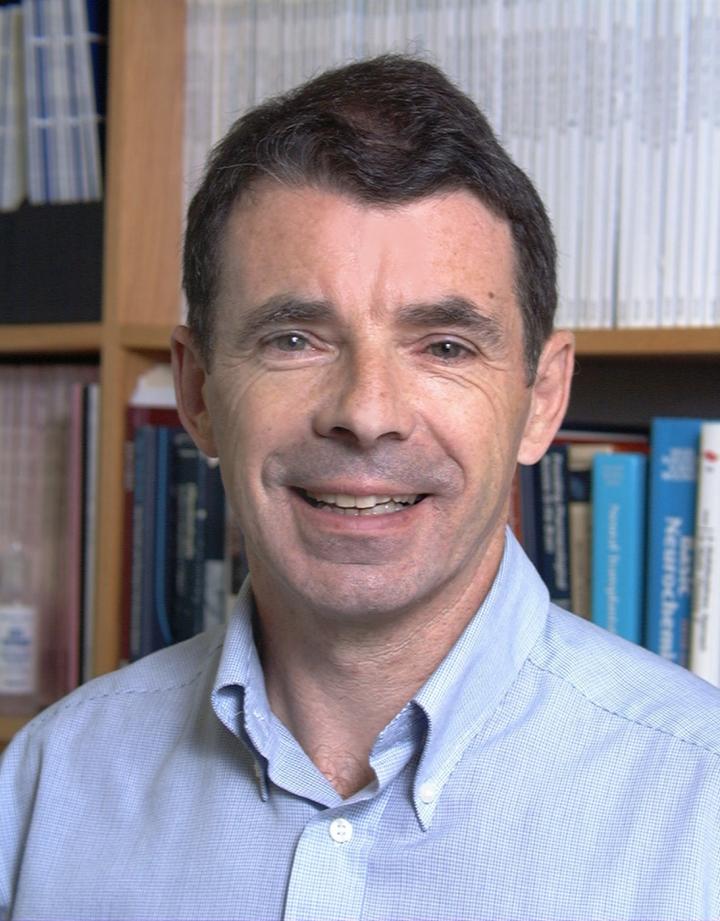The University of Wisconsin-Madison professor made groundbreaking research on how myelin (the protective nerve coating in the brain and spinal cord) is damaged, particularly in multiple sclerosis (MS), and how it may be repaired

Credit: University of Wisonsin-Madison
New York – May 11, 2020 — This year’s John Dystel Prize for Multiple Sclerosis Research goes to Ian D. Duncan, a neuroscientist and Professor of Neurology at the University of Wisconsin-Madison, for groundbreaking research on how myelin (the protective nerve coating in the brain and spinal cord) is damaged, particularly in multiple sclerosis (MS), and how it may be repaired.
The Dystel Prize is given jointly by the National MS Society and the American Academy of Neurology. It was established by the late Society National Board member Oscar Dystel and his wife, Marion, in honor of their son, John Jay Dystel.
“Professor Duncan has made a series of critical research advances that bring us closer to understanding how to restore function in people with MS by promoting myelin repair,” said Bruce Bebo, PhD, Executive Vice President of Research for the National MS Society.
Professor Duncan has focused on generating and testing the potential of myelinating cells by transplanting them into animal models of human disease. He has also made important observations related to the capability of brain cells to restore myelin in the brain and spinal cord (central nervous system-CNS), and ways to detect whether myelin repair has occurred.
In nominating Prof. Duncan for the Dystel Prize, Lawrence Steinman, MD, (Stanford University), recipient of the 2004 Dystel Prize, said, “Dr. Duncan was one of the earliest investigators to tackle CNS repair in demyelinating disease and to uncover leads as to how to best achieve this. He has proven to be one of the early visionaries for this endeavor.”
Prof. Duncan was one of the first researchers to come up with feasible ideas on how to achieve myelin repair in myelin-damaging disorders. Some of the advances that he has contributed to include:
- Identifying a number of new myelin-related disorders in animals, some of which model human disorders.
- Being among the first to transplant myelinating cells into the spinal cord of rodents.
- Making extensive contributions to the understanding of oligodendrocytes, the central nervous system cells that make myelin.
- Showing that large areas of the central nervous system could be myelinated by transplanted cells, and finding the cells that could best do this.
- Developing the ability to follow transplanted cells by labeling them with nanoparticles that could be tracked using magnetic resonance imaging.
- Making observations critical to research on therapies for myelin repair – by showing that myelin repair promotes recovery of function; that thin myelin sheaths that form following repair can support nerve function; and that intact adult oligodendrocytes can engage in myelin repair after damage has occurred.
- Found biological signs that increasing speed of nerve signals reflects myelin repair, using a method called visual evoked potentials (VEP). This affirms the potential value of VEP in future clinical trials of myelin repair strategies for MS.
###
Read more about other Dystel Prize winners
Biography: Ian D. Duncan is a Professor of Neurology in the Department of Medical Sciences, School of Veterinary Medicine, the University of Wisconsin-Madison. He earned a degree in veterinary medicine and a doctorate in experimental neuropathology from Glasgow University and was a research fellow of the Canadian Multiple Sclerosis Society in Montreal. His many honors include the Lifetime Excellence in Research Award from the American Veterinary Medical Association, the World Small Animal Veterinary Association International Award for Scientific Achievement, Smith Kline and Beecham Faculty Research Award, and the Michael Falconer Distinguished Service Award. He was elected to the National MS Society’s Volunteer Hall of Fame in both the Professional and Outstanding Fundraiser categories. Prof. Duncan is a Fellow of the Royal College of Veterinary Surgeons, Fellow of the Royal College of Pathologists, Fellow of the Wisconsin Academy of Science, Arts and Letters and a Corresponding Fellow of the Royal Society of Edinburgh. He is a member of the Norwegian Stem Cell Center International Advisory Board and was a founding member and Chair of the Scientific Work Group, The Myelin Project.
About Multiple Sclerosis
Multiple sclerosis is an unpredictable, often disabling disease of the central nervous system. There is currently no cure for MS. Symptoms vary from person to person and range from numbness and tingling, to mobility challenges, blindness and paralysis. An estimated 1 million people live with MS in the United States. Most people are diagnosed between the ages of 20 and 50, and it affects women three times more than men.
About the National Multiple Sclerosis Society
The National MS Society, founded in 1946, funds cutting-edge research, drives change through advocacy, and provides programs and services to help people affected by MS live their best lives. Connect to learn more and get involved: nationalMSsociety.org, Facebook, Twitter, Instagram, YouTube or 1-800-344-4867.
Media Contact
Gena Hyde
[email protected]




